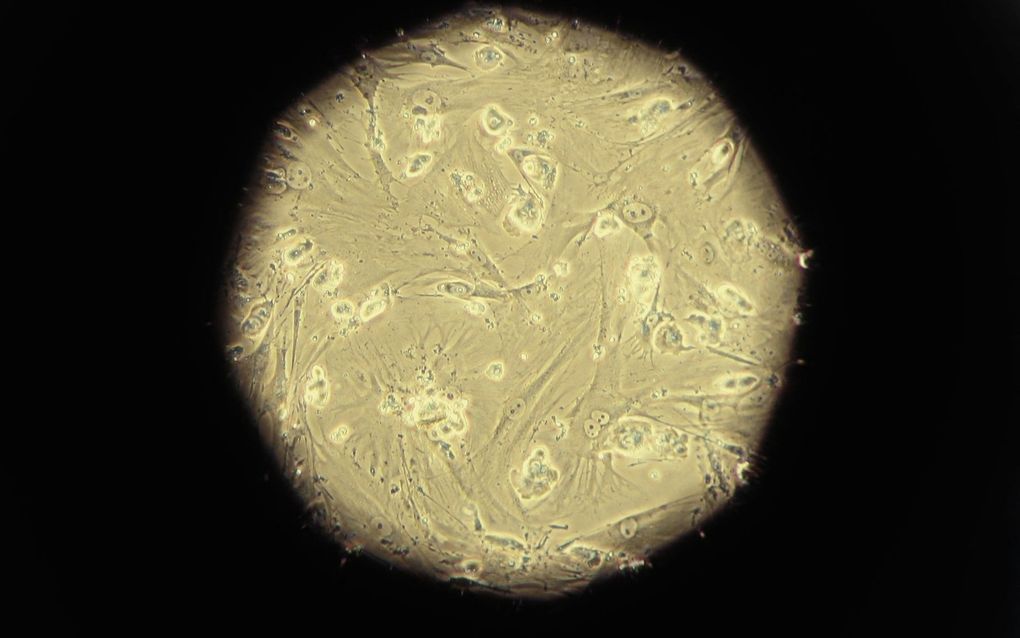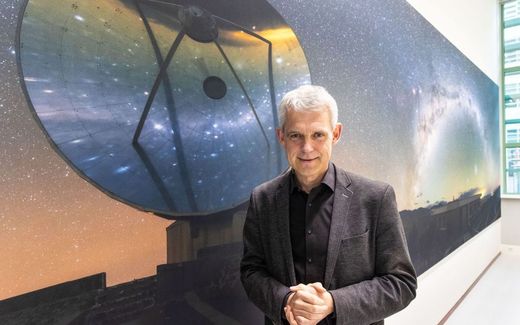The moral hazards of synthetic human embryos
04-07-2023
Opinion
Jordan J. Ballor, World Magazine

Embryonic material under a microscope. Manipulation of human life places us for ethical dilemmas. Photo AFP, Mauricio Lima
Opinion
Sometimes ignorance is better than knowledge, Augustine said. We should not know everything. Jordan Ballor applies this to embryo technology in a lab setting.
A new front has been breached in the technological manipulation of human life. As reported by numerous outlets earlier last month, scientists have reported “successfully developing the first-ever synthetic human embryos.” Rather than taking pre-existing eggs and sperm from parents, these embryos have been created with genetic material derived from embryonic stem cells.
The motive for creating such “model embryos”, as they are called, is to get around legal and practical limitations surrounding research into the earliest stages of human life. Normal embryos in a lab setting can only be developed for up to 14 days (in the United States, ed.). But other, donated embryos, are typically older than that. So, there is a gap between what is legally permitted and what is practically available for researchers, or as Tim Newcomb at Popular Mechanics puts it, “The developmental stage between those windows remains a mystery that researchers are very eager to solve.”
This is where these synthetic human embryo models come in. They are intended to be able to mimic the development of normal embryos beyond the legally permitted period. The researchers who have created these embryo models are quick to point out that they are not, as such, viable to maturity and are not, as they put it, “human embryos.” But they are living organisms that have been artificially created to closely match the development of normal human embryos, raising a host of ethical and theological questions.
In some ways this latest news is the inevitable consequence of a long line of research stretching back into the previous century. Forty-five years ago, in 1978, two British researchers successfully used in vitro fertilization to artificially create a human embryo in a lab setting outside of a woman’s body. In the decades since, this practice has become so widespread that there are serious issues concerning the preservation and destruction of these human lives. Likewise, the creation of human-animal chimaeras has become commonplace, such that human organs might be grown and harvested from animals. In 2021, a human-monkey chimaera was created by using human stem cells and monkey embryos. The surplus embryos that a couple decides not to use have sparked the phenomenon of embryo adoption, and there are numerous valid moral concerns and legal constraints on the development of chimaeras.
Experiments
Naturalistic and secular worldviews just do not provide adequate grounds for radical concern about such practices. If there is no overarching moral order and human beings are simply amalgamations of biological material, then the manipulation of our bodies and even our genetic code is seemingly an undeniable good. Indeed, the purposes of such experiments are always couched in positive terms, with the goal being the relief of human suffering or the advance of knowledge, which is always taken as good in itself. It is significant that the rapid advent of eugenic philosophies and technologies has coincided with the rise of evolutionary and naturalistic perspectives. The human person is the final frontier of scientific mastery.
C.S. Lewis was prophetic 80 years ago when he observed this dynamic in his prescient work, The Abolition of Man. “It is in Man’s power to treat himself as a mere ‘natural object’ and his own judgments of value as raw material for scientific manipulation to alter at will,” writes Lewis. But it is not the case that we will, as radically autonomous individuals, simply be able to reshape and refashion that raw material as we each see fit. Rather the human person will become raw material for the expert scientists and researchers, who Lewis calls “the Conditioners,” to artificially engineer. “If man chooses to treat himself as raw material, raw material he will be,” warns Lewis, although “not raw material to be manipulated, as he fondly imagined, by himself, but by mere appetite, that is, mere Nature, in the person of his de-humanised Conditioners.”
Christians, who confess the dignity of all human beings and recognise the sanctity of life that begins at conception, can see clearly that there are moral boundaries to what technology can and should do. As Augustine once put it, “There are some things of which ignorance is better than knowledge.” Just because human beings are able to do something does not mean that we should do it. And scientific research should tread very carefully in these areas where human dignity is so clearly at stake, human lives are so radically vulnerable, and abuse is so patently probable.
We need truly observant and responsible Christian scientists to be involved in all areas of research, to know the technical details and the expert practices, and to speak to where these violate morality and human dignity. And Christians should also work together with all those of goodwill who recognise the moral boundaries of technological manipulation to enact protections for human dignity that will prevent the abuse of scientific research, the destruction of human life, and the abolition of man.
This article was published in World Magazine before on June 27th, 2023
Related Articles









